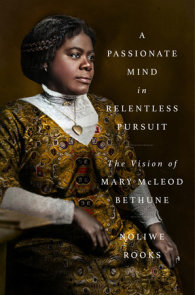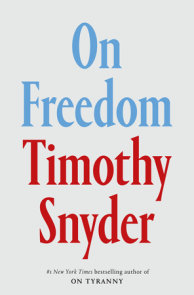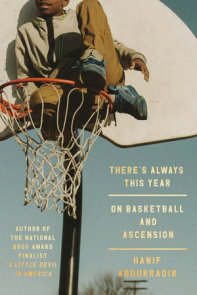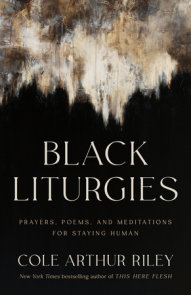READERS GUIDE
Discussion QuestionsThe Black Box: Writing the Race explores how Black Americans, through the written word, advocated for themselves and their race, showing the complexities and contradictions of their people. They also wrote in the hope of finding freedom from the limitations placed upon them. The following questions ask you to reflect upon this history and your own personal experiences as we continue to examine the black box.
1. The Preface explains the black box as “the figurative black box in which people of African descent were, and continue to be, confined, so as to justify the caste subordination manifesting itself in the Big Bang of the transatlantic slave trade. . . . But at the same time, these devalued human beings had to make a home within this box.” Have you ever found yourself in a black box or subconsciously placed others into one? What does the black box mean to you?
2. Before her poems could be published, Phillis Wheatley’s work had to be “authenticated” by prominent white male Bostonians to prove that she herself, as a Black woman, had written them. Has the authenticity or validity of your own work ever been challenged by those in more privileged positions, and what factors do you believe were at the root of the challenge? If so, were there colleagues or peers whose work wasn’t challenged in the same way? How did this experience make you feel about yourself or about those who questioned you?
3. One hundred years after W. E. B. Du Bois theorized about the Talented Tenth and Charles W. Chesnutt made his literary debut, “the politics of respectability” still loom large over the Black community. Is one class more “deserving” than another simply because they’re considered more “respectable”? Does the success of one class within the Black community necessarily come at the expense of the other?
4. Despite his intelligence, confidence, and fame, Frederick Douglass was often reduced to and placed within the black box. “When white abolitionists tried to hold Douglass up as an example of Black intellect and the equality of the so-called races . . . white critics were convinced that he derived all his intelligence from his white father,” Gates writes. Has anyone ever tried to use your existence to support or negate their own claims, placing you within a box and using you as an exemplar for a particular group? How did you reassert your autonomy?
5. “The publication of books written by people who had escaped slavery was, first and last, political, and slave narratives were critical to the antislavery movement.” They were also deeply personal, as formerly enslaved writers sought to regain their autonomy and control the story of their lives. What is your narrative? What are some obstacles there might be to telling it?
6. Chapter 2 examines the importance of a name, explaining how “the naming business occupied a prominent place in the minds (and writing) of free Negroes and has continued to play an important role in Black politics.” How have the names you’ve been given—for example, your first name, last name, the name of your racial or ethnic group—impacted your life? Have any changed over time? What has their impact been?
7. From James Weldon Johnson’s 1912 The Autobiography of an Ex-Colored Man to Brit Bennett’s 2020 The Vanishing Half, the concept of Black folks passing as white continues to be a compelling and complicated subject explored in literature and film. How do you perceive the concept of passing, both historically and in contemporary culture? Using examples from works Gates discusses, do you view passing as a form of “selling out” or of survival? How might an individual’s personal history inform their decision to pass?
8. Both Chapter 1 (“They sat at their desks and read and wrote books, and by doing so, they wrote themselves and their fellow persons of African descent into the human community.”) and the Conclusion (“Since the earliest years of our republic, Black thinkers have fought racism through language, not against it.”) poignantly note the importance of Black thinkers and their creations. What are some of your favorite examples of Black thinkers fighting racism through language by writing Black folks into the human community? Were they mentioned in this text? After reading, are there any Black thinkers mentioned whom you’d like to learn more about?
Additional Reading:
The Portable Charles W. Chesnutt by Charles W. Chesnutt, edited by William L. Andrews (9780143105343)
The Souls of Black Folk by W. E. B. Du Bois (9780140189988)
Selected Poems by Paul Laurence Dunbar (9780142437827)
Invisible Man by Ralph Ellison (9780679732761)
The Classic Slave Narratives edited by Henry Louis Gates, Jr. (9780451532138)
Selected Poems of Langston Hughes by Langston Hughes (9780679728184)
Their Eyes Were Watching God by Zora Neale Hurston (9780061120060)
The Autobiography of an Ex-Colored Man by James Weldon Johnson (9780140184020)
The Vanishing Half by Brit Bennett (9780525536291)
The New Negro Aesthetic by Alain Locke, edited by Jeffrey C. Stewart (9780143135210)
Beloved by Toni Morrison (9781400033416)
The Bluest Eye by Toni Morrison (9780307278449)
Song of Solomon by Toni Morrison (9781400033423)
Cane by Jean Toomer (9780143133674)
Up from Slavery by Booker T. Washington (9780140390513)
Complete Writings by Phillis Wheatley (9780140424300)
Native Son by Richard Wright (9780060837563)




















